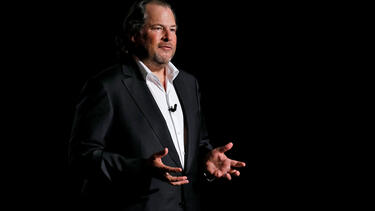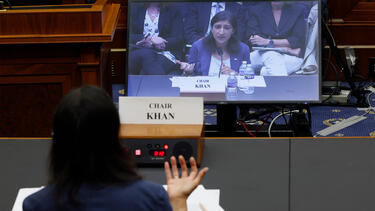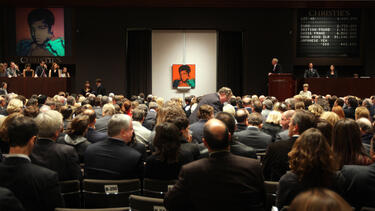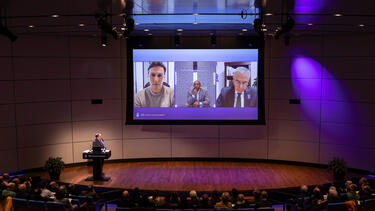Faculty Viewpoints
Triumph and Disaster: The Best and Worst CEOs of 2023
Yale SOM leadership expert Jeffrey Sonnenfeld and co-author Steven Tian highlight the three best- and worst-performing CEOs of 2023—and hint at what’s ahead for each of them in the new year.

No, the Business Exodus from Russia Was Not a Bonanza for Putin
Yale SOM’s Jeffrey Sonnenfeld and Steven Tian, with Tymofiy Mylovanov and Nataliia Shapoval of the Kyiv School of Economics, respond to a New York Times articles on the effect of the boycott.

Our Most-Read Stories of 2023
This year, Yale SOM research examined sustainable investing, the dynamics of social media, the role of race in school discipline, and the complexities of airline pricing. And faculty offered expertise on issues in the news, including the changing workplace, noncompete agreements, the politics of ESG investing, the effectiveness of masks, the collapse of Silicon Valley Bank, and the Barbie movie phenomenon.

The FTC’s Antitrust Overreach Is Hurting U.S. Competitiveness and Destroying Value
Yale SOM’s Jeffrey Sonnenfeld and Steven Tian write that FTC chair Lina Khan’s attempts to block mergers are draining economic value—and consistently failing in court.

Is Commercial Real Estate in for a Downturn…or a Crisis?
Commercial real estate downturns don’t typically create systemic threats. Yale SOM’s Andrew Metrick offers a nightmare scenario showing why this time might be different.

The Breathing Technique that Can Make You a Better Leader
Yale SOM’s Emma Seppälä found that a weeklong training in the SKY Breath technique provides a lasting reduction in anxiety and greater resilience to stress, even for those who don’t continue to practice it.

The Israel-Hamas War Reveals the Fundamental Flaws of Social Media
Yale SOM’s Jeffrey Sonnenfeld and Steven Tian write that the viral spread of anti-Semitic and Islamophobic content over the last two months has underlined the failure of social media platforms to control misinformation and hate—and the importance of truth in the face of propaganda.

Shining a Light into the Black Box of the Art Market
The opacity of the art market benefits a tiny elite of collectors, gallerists, and artists, says Yale SOM's Magnus Resch, but makes it harder for most artists and art lovers to connect.

Modeling the Path Toward Creativity
Creative insight may appear to arrive in a flash, says Yale SOM economist Jonathan Feinstein, but the eureka moment typically emerges from a foundation built over years. Feinstein’s new book modeling creativity is itself the result of an early interest and decades of exploration.

Dialogue About the Middle East Is Possible—Indeed, It’s the Only Way to Peace
A recent event held at Yale showed that discussions among Israelis, Arabs, and other concerned parties can help bring out points of commonality that may be the first steps on a path toward peace, argue Yale’s Jeffrey Sonnenfeld and Steven Tian.
